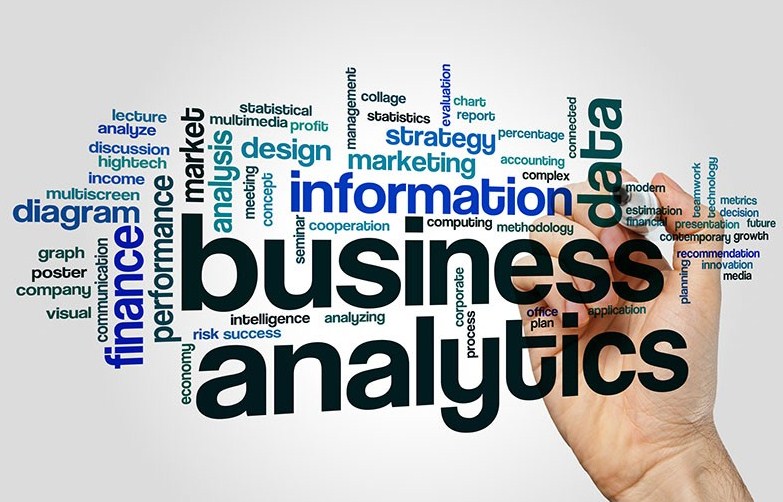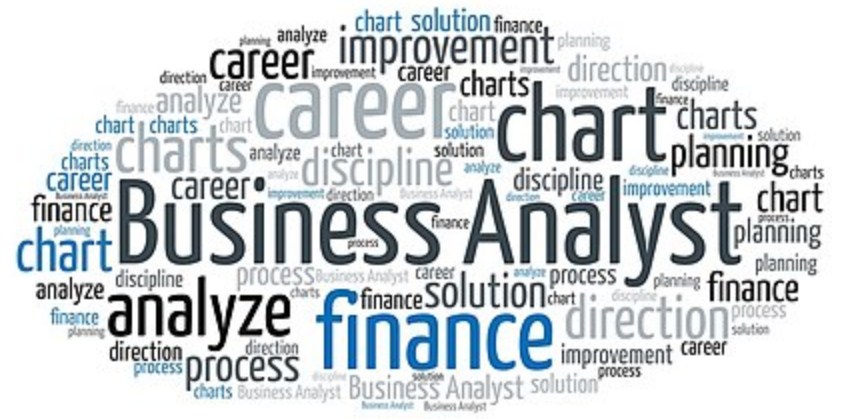Business Analyst Cloud – In today’s fast-paced business environment, cloud computing has become essential for business analysts. The business analyst cloud tools provide powerful capabilities to optimize data analysis, streamline workflows, and enhance decision-making. As businesses move towards digital transformation, cloud-based solutions offer unparalleled advantages in terms of accessibility, scalability, and cost-efficiency. In this guide, we will explore the top business analyst cloud tools, their benefits, use cases, and transactional insights to help you choose the best product for your needs.

What is a Business Analyst Cloud?
A business analyst cloud refers to cloud-based software tools and platforms designed to support business analysts in collecting, analyzing, and interpreting data. These tools are hosted on remote servers and accessed via the internet, providing flexibility, scalability, and collaboration across teams. They allow business analysts to leverage real-time data, automate processes, and deliver insights that guide business strategies.
Unlike traditional desktop tools, cloud-based solutions provide numerous benefits such as reduced infrastructure costs, easy updates, and the ability to work from anywhere. Whether you are analyzing market trends, customer behavior, or financial data, the business analyst cloud tools are essential for making data-driven decisions.
Benefits of Using Business Analyst Cloud Tools
1. Enhanced Accessibility and Collaboration
With cloud-based tools, business analysts can access their work from anywhere in the world, making remote collaboration easier than ever. No more worries about accessing data from different devices or locations. Teams can collaborate in real time, ensuring seamless communication and faster decision-making.
2. Scalability and Flexibility
Cloud platforms allow businesses to scale up or down based on their needs. You can add more users or expand storage without worrying about infrastructure costs or management. Whether you’re a small startup or a large enterprise, cloud tools grow with your business.
3. Cost-Efficiency
Most cloud solutions operate on a subscription basis, meaning you only pay for what you use. This pricing model eliminates the need for hefty upfront investments in software licenses or hardware, reducing operational expenses and making it a more affordable solution for businesses of all sizes.
4. Real-Time Data Analysis
Business analyst cloud tools allow you to process and analyze data in real-time. This is crucial for businesses that need to react quickly to market changes or make informed decisions based on the latest data available.
5. Automated Reporting and Analytics
Many cloud-based platforms offer automation features that reduce the manual effort involved in reporting and analytics. With automated dashboards, reports, and visualizations, business analysts can focus more on insights and less on data wrangling.
Top 5 Business Analyst Cloud Tools to Consider

1. Tableau Cloud – Best for Data Visualization
Tableau Cloud is one of the leading cloud platforms for business analysts, offering powerful tools for visualizing and sharing data insights. It enables analysts to build interactive dashboards, integrate with various data sources, and collaborate with teams in real-time.
- Use Case: Ideal for companies that require complex data visualization and want to enable data-driven decision-making across the organization.
- Pros:
- Easy-to-use drag-and-drop interface
- Real-time data collaboration
- Strong data integration capabilities
- Cons:
- Steep learning curve for beginners
- Can be costly for small businesses
- Price: Starts at $70 per user/month
- Features:
- Interactive dashboards
- Real-time collaboration
- Data blending and integration
- Mobile access
2. Power BI – Best for Microsoft Ecosystem Integration
Power BI is Microsoft’s cloud-based analytics tool, providing robust data visualization and reporting features. It integrates seamlessly with other Microsoft tools like Excel, Azure, and SharePoint, making it perfect for businesses already using the Microsoft ecosystem.
- Use Case: Perfect for businesses using Microsoft products who want an all-in-one data analysis and reporting tool.
- Pros:
- Seamless integration with Microsoft tools
- Affordable pricing model
- Excellent data visualization features
- Cons:
- Limited customization for complex needs
- Performance can degrade with large datasets
- Price: Free for basic use; Pro version starts at $9.99 per user/month
- Features:
- Customizable dashboards
- Real-time data updates
- Integration with Microsoft tools
3. Google Data Studio – Best for Google Integrations
Google Data Studio is a free cloud-based tool that allows business analysts to create detailed reports and dashboards. It integrates well with other Google services such as Google Analytics, Google Sheets, and BigQuery.
- Use Case: Ideal for businesses already using Google services for marketing, analytics, and data storage.
- Pros:
- Free to use
- Easy integration with Google services
- User-friendly interface
- Cons:
- Limited advanced features
- May not scale well for large organizations
- Price: Free
- Features:
- Real-time collaboration
- Easy integration with Google services
- Customizable reports and dashboards
4. Qlik Sense – Best for Advanced Analytics
Qlik Sense is a powerful cloud-based data analytics platform that allows users to explore data and uncover insights with advanced analytical tools. It’s suitable for businesses that need more sophisticated analytics beyond just reporting.
- Use Case: Ideal for large enterprises or those requiring advanced analytics and in-depth business intelligence.
- Pros:
- Powerful analytics capabilities
- Scalable for large organizations
- AI-driven insights
- Cons:
- Complex setup and configuration
- Expensive for small businesses
- Price: Starts at $30 per user/month
- Features:
- Advanced data analytics
- AI-driven insights
- Scalable and customizable solutions
5. Domo – Best for Data Integration and Real-Time Dashboards
Domo is a cloud-based platform designed for business analysts who need to combine data from various sources into a single dashboard. It offers extensive integration options and real-time data analysis.
- Use Case: Perfect for businesses that require extensive data integration from multiple sources.
- Pros:
- Excellent data integration options
- Real-time analytics and dashboards
- Easy-to-use interface
- Cons:
- Can be expensive for small teams
- Limited advanced analytics features
- Price: Starts at $83 per user/month
- Features:
- Real-time dashboards
- Data integration from various sources
- Easy-to-use interface
Comparison Table: Business Analyst Cloud Tools
| Product | Use Case | Pros | Cons | Price | Features |
|---|---|---|---|---|---|
| Tableau Cloud | Data visualization and interactive dashboards | Easy-to-use, Real-time collaboration | Steep learning curve, Costly for small businesses | $70 per user/month | Interactive dashboards, Data blending, Mobile access |
| Power BI | Microsoft ecosystem integration | Seamless Microsoft integration, Affordable | Limited customization, Performance issues with large datasets | Free, $9.99 per user/month for Pro | Custom dashboards, Real-time data updates |
| Google Data Studio | Marketing and analytics reporting | Free, Google service integration | Limited advanced features | Free | Real-time collaboration, Custom reports |
| Qlik Sense | Advanced analytics | Powerful analytics, Scalable | Complex setup, Expensive for small businesses | $30 per user/month | AI-driven insights, Advanced analytics |
| Domo | Data integration from multiple sources | Data integration, Real-time dashboards | Expensive, Limited analytics features | $83 per user/month | Real-time dashboards, Data integration |
Transactional: Where and How to Buy Business Analyst Cloud Tools
1. Tableau Cloud
You can buy Tableau Cloud directly from Tableau’s official website. They offer various pricing plans, and it’s possible to start with a free trial to explore the features.
How to Buy:
- Visit the official website
- Choose the plan that best suits your business needs
- Sign up for a free trial or purchase a subscription
2. Power BI
Power BI can be purchased through Microsoft’s Power BI website. The free version is perfect for individual use, while businesses can opt for the Pro version.
How to Buy:
- Go to the Power BI site
- Choose between the free and Pro versions
- Sign up and start using Power BI right away!
FAQs:
1. What is the best business analyst cloud tool?
The best cloud tool depends on your needs. For visualization, Tableau Cloud is excellent, while Power BI is best for integration with Microsoft tools.
2. Are cloud tools secure?
Yes, top cloud platforms have strong security measures, including data encryption and multi-factor authentication to protect your data.
3. Can I use these tools without technical expertise?
Many cloud tools, like Power BI and Google Data Studio, offer user-friendly interfaces and tutorials, making them accessible to non-technical users.
4. How much do business analyst cloud tools cost?
Pricing varies by tool and plan. Power BI starts at $9.99 per user/month, while Tableau Cloud starts at $70 per user/month.
5. Do I need an IT team to manage these tools?
While cloud tools are designed to be user-friendly, having an IT team can help with advanced configurations and integrations for larger businesses.
With this guide, you’re now equipped with the knowledge to choose the best business analyst cloud tools, their benefits, how to buy them, and the key factors to consider before making a decision.
Read More >>>
- Business Cloud Solutions: Top 5 Products, Benefits & How to Buy
- Best Business Cloud Services for 2024: Top Solutions to Boost Your Business